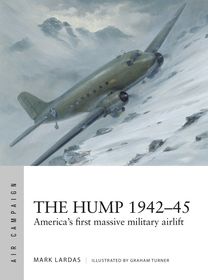
- Publisher's listprice GBP 16.99
-
8 116 Ft (7 730 Ft + 5% VAT)
The price is estimated because at the time of ordering we do not know what conversion rates will apply to HUF / product currency when the book arrives. In case HUF is weaker, the price increases slightly, in case HUF is stronger, the price goes lower slightly.
- Discount 13% (cc. 1 055 Ft off)
- Discounted price 7 061 Ft (6 725 Ft + 5% VAT)
Subcribe now and take benefit of a favourable price.
Subscribe
8 116 Ft

Availability
Not yet published.
Why don't you give exact delivery time?
Delivery time is estimated on our previous experiences. We give estimations only, because we order from outside Hungary, and the delivery time mainly depends on how quickly the publisher supplies the book. Faster or slower deliveries both happen, but we do our best to supply as quickly as possible.
Product details:
- Publisher Bloomsbury Publishing (UK)
- Date of Publication 18 December 2025
- Number of Volumes Paperback
- ISBN 9781472865946
- Binding Paperback
- No. of pages96 pages
- Size 248x184 mm
- Weight 454 g
- Language English
- Illustrations Illustrated throughout with 65 photos and 14 pages of colour illustrations 700
Categories
Short description:
A comprehensively illustrated history and analysis of 'The Hump' campaign in World War II, the huge and treacherous airlift over the Himalayas to keep China fighting.
MoreLong description:
A comprehensively illustrated history and analysis of 'The Hump' campaign in World War II, the huge and treacherous airlift over the Himalayas to keep China fighting.
In World War II, the war in China tied down much of the Japanese Army, and it was crucial to keep China fighting and supplied. But when the Burma Road fell, the only way left was by air, in piston-engined transports, over the Himalayas from India. As Japan captured new bases and stationed fighters to intercept, the possible routes over 'The Hump' became increasingly treacherous.
In this book, aviation historian Mark Lardas explains how the campaign was fought. While the effort started with only 25 transports and its original organization was ad hoc, by July 1945 it had grown into a vast and organized air armada, with new airfields, specialized navigation aids, and a force of 640 aircraft. The cost was high, with 594 aircraft lost, and over 1,300 killed. But during the war it hauled nearly 700,000 tons of supplies, keeping China in the war. The India-China Wing of the Air Traffic Command earned a Presidential Unit Citation for its efforts, the first ever awarded to a non-combat unit.
Packed with illustrations and maps, this is the story of the first successful strategic airlift in history. The lessons of the Hump fed into the Berlin Airlift of 1948-49, and it was the essential forerunner behind the United States' capability to project power in the Cold War.
Table of Contents:
(Subject to confirmation)
Introduction
Chronology
Attacker's Capabilities
Defender's Capabilities
Campaign Objectives
The Campaign
Aftermath and Analysis
Conclusion
Bibliography
Index




